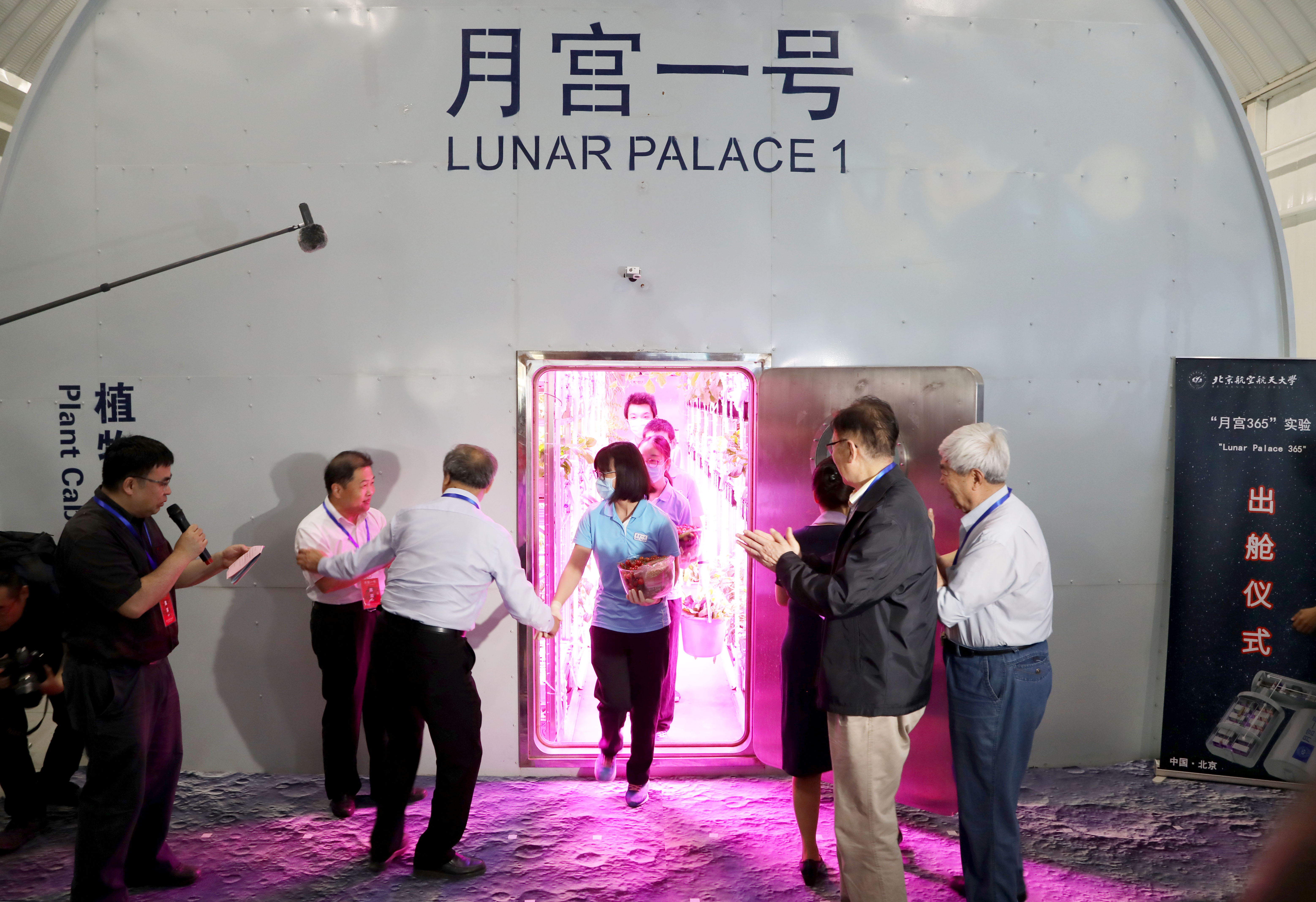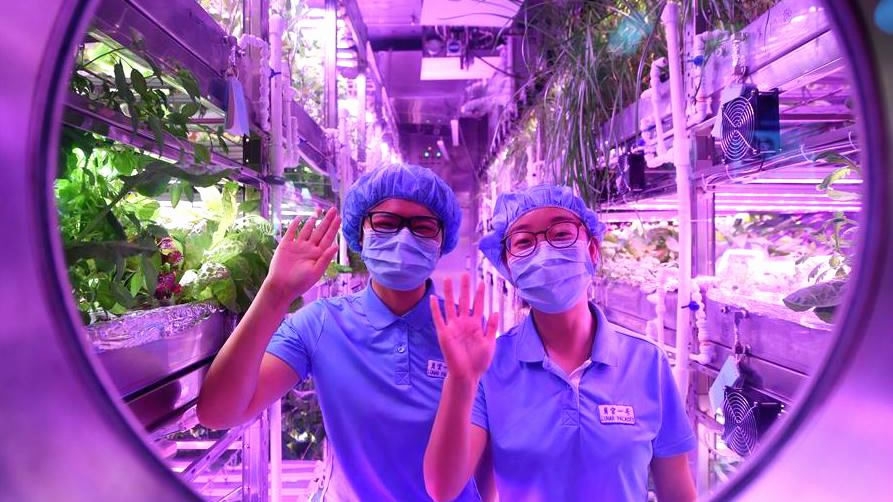China's 'Lunar Palace' breaks record after 365+5 days
 0 Comment(s)
0 Comment(s) Print
Print E-mail CGTN, May 16, 2018
E-mail CGTN, May 16, 2018

After one year of living in the "Yuegong-1" or "Lunar Palace" in Beijing, four volunteers stepped out of the simulated space cabin with cabin-grown vegetables in their hands. The success of this research project, "Yuegong-365," set a new world record for the longest stay in a self-contained laboratory.
Beginning on May 10, 2017, the 365-day project lasted five days longer than planned. The delay, which was intentional, was meant to test the volunteers' psychological states in unexpected situations.
Located in Beijing's Beihang University, Yuegong-1 has a total area of only 150 square meters, and consists of two plant cabins and the comprehensive cabin. The volunteers successfully grew fruit and vegetables such as strawberries, soybeans and carrots in the laboratory.
For the participants, living and working in the small space is a challenge.
Eight volunteers, all students from Beihang University, were divided into two groups. Two men and two women entered for an initial stay on May 10, 2017. After 60 days, they were relieved by another group of four, who stayed 200 days. The second group of students came out on Jan. 26, 2018, and the initial group entered again, and stayed until Tuesday.
After leaving the cabin, the four volunteers were sent directly to the hospital for a health check. "We will be isolated again," a female volunteer told CCTV. "We will go through different physical examinations, and will be free after a one-week observation period."
"In the early phase of the experiment, I wasn't mentally prepared, but I gradually got used to my life in the lab," said Liu Guanghui, one of the participants in the experiment.
Liu said he viewed this experience as "a precious treasure of my life."
The experiment was designed to test a bioregenerative life support system (BLSS), by sealing animals, plants and microorganisms co-exist in an environment designed to simulate a lunar base. It also examines the physical and mental conditions of humans in this kind of environment. Oxygen, water and food are recycled within the BLSS, creating an Earth-like environment.

The Yuegong-365 project was intended to increase China's knowledge and technical know-how, and help the country's scientists understand exactly what will be required for humans to remain on the moon for medium and long term stays.
According to Professor Liu Hong, the chief designer of Yuegong-1, the purpose of the project was to test the stability of the BLSS when "astronauts" take turns living in the cabin. "We built some mistakes into the system on purpose to test the sustainability of our lab."
For the past year, the volunteers planted crops and managed their waste according to a recycling system.
"Eighty percent of the food could circulate inside," Professor Liu said in the monitoring room near the cabin. "So in the future, if we want to live on the moon, Mars or anywhere that's not the Earth, the technology can increase our chances to survive."
A similar trial was carried out successfully in 2014. But this most recent experiment was more complex, as the time was longer and the physical conditions for the volunteers were more diverse.
China plans to send astronauts to the moon before 2036. This research provides the scientific support needed for such a mission.
"The experiment showcased our technology, which can support the astronauts, or volunteers, staying inside [the cabin] for a long duration," she added.
There is still much work to do, as the space lab program has to anticipate many more outer space conditions, Wang Jun from the Chinese Academy of Engineering said.






Go to Forum >>0 Comment(s)